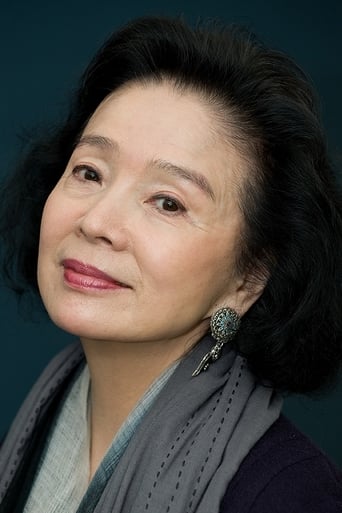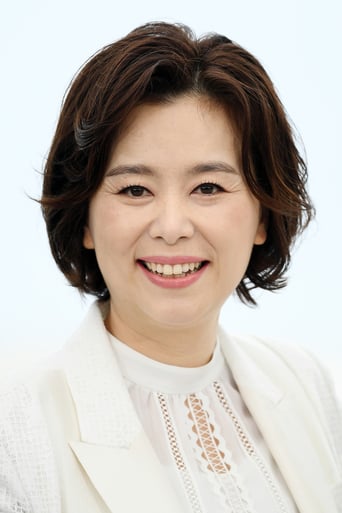Christian
The theme of old age and illness find a new positive essence in poetry. A device to have even the elderly explore life in new and interesting ways. The excellent screenplay and brilliant directing from Chang-Dong Lee combined with an engaged ensemble cast and revealing cinematography, give place for an intimate interaction. The poets and aspiring poets fit well in this story of inner discovery. The inspiration is difficult to come by and external events will accentuate the duality of seeing life as an observer while also being an essential actor. The multi-layered story has poetry, dialogue, imagery and much time for reflection. The film builds up to the last poem "Agnes' Song" by Mija Yang (the protagonist) which is powerful and perfect. Accentuated by it's accompanying images, it brings out life, beauty, sadness, acceptance, connection and so much more. The editing is especially effective here, but is extraordinary throughout. The ending confirms that the collections of individually intense and intelligent scenes witnessed transcends by transposing and transforming Mija and ultimately the viewer. Hopefully this will inspire a perhaps much needed poetic view of this hypermodern world which can barely watch deliberate thoughtful meaningful measured movies like this, much less find and read a poem. Maybe this artistic beckon will even encourage someone to write one.
valis1949
POETRY (dir. Chang-dong Lee) POETRY is a slow-moving character drama which is disarmingly powerful, yet haunting and meditative. Mija is a sixty-six year old suffering from early onset Alzheimer's disease who lives in a rural Korean town with her indolent teen aged grandson, Jongwook. In an attempt to stimulate her cognitive abilities, she enrolls in a poetry class. Things are looking up until she learns that her grandson was involved in the suicide of one of his classmates. Jongwook and some of his friends had been sexually abusing a classmate, and this drove the young girl to take her life. Soon Mija is contacted by the fathers of the boys and learns that they want to pay the girl's mother a large sum of money to keep her from going to the authorities. In her poetry class at the community center Mija learns that in order to create poetry one must learn, 'to observe', 'to notice', and 'to witness'. The need for a heightened awareness or sensibility becomes the compelling dichotomy of the film. We observe that the fathers only focus on the ramifications of the incident on the lives of their sons, while Mija becomes moved and deeply empathizes with the loss of this innocent young girl to her family and the community. And, in the end Mija forces her grandson to face up to his responsibility, and she also constructs a loving and heartfelt poetic eulogy for the young girl. And, in a remarkable way of relating these two crucial events, the character of Mija is not even present as the actions unfold. Director, Chang-dong Lee, delivers a wonderful film which touches on a wide range of difficult subjects; poetry, dementia, sexual abuse and suicide, and casts an elderly semi-retired Korean actress as the star of the film. However, these kinds of mature topics and deliberate presentation are out of favor in Hollywood and unpopular with contemporary film audiences. I'm afraid that this film will never garner much commercial success, but if you take the time 'to witness', you will enjoy a truly rewarding cinematic experience.
Red_Identity
Reading Poetry's summary, one sees a sentimental film. I surely wasn't sure if I wanted to see this or not. I am completely happy I did.What we have here is a slow-paced, delicate film. But it doesn't sway in sentimentality. It's subtle, quiet, and perhaps the most gentle film of the year, but it also wallows in the study of a suburban woman and in many ways feels like a dark portrait of a story. Yoon Jeong-hee is magnificent! She conveys so much emotion, and we realize just how quickly we want to see her journey here. The direction is assured, quitely letting us explore, never calling attention to itself. The screenplay is brilliant, and has the ideal arc needed for a film like this.There are many amazing moments in this film, moments that really grabbed me and that emotionally shook me. One of the best films of the year in an already amazing year for film.
SnorrSm1989
First, let it be emphasized, as stated above, that this review contains spoilers, some quite major ones at that, so if you have not seen this movie and intend to do so, I'd advise you to skip this piece for now.Last year I had the good fortune of seeing the rarely-screened (albeit often-praised) Brazilian silent film LIMITE, and it left me in a state of mind where it seemed quite stupid to say anything about it, as no written word could do it justice. (This reaction is not necessarily a negative thing, providing that you defy it and write something anyway.) The next time a film had this effect on me was a few days ago, with Lee Chang-dong's POETRY. Made some eighty years after the former, I won't compare the two films, other than noting that I think both, at least indirectly, cover a sort of identical inner subject; beauty within ugliness. Both films are extremely visual, LIMITE inescapably so as it is a silent film, whereas POETRY confirms that also in this day and age, the power of the spoken word is ultimately dependent on our ability to use it sparingly, and let what can only be seen, felt and smelled, remain only seen, felt and smelled. Lee Chang-dong, one of the most promising Korean directors around these days, understands this, as he brutally deprives us of the comforting accessibility found in who-knows-how-many Hollywood-films; and instead, presents to us something which is maddeningly cruel and frustrating, but equally inspiring and peaceful.Mija (brilliantly portrayed by Jeon-hie Yun in what seems to be her first performance in a number of years) is a poor, elderly woman who is trying to raise her much-troubled grandson. Being a victim of the largely male-dominant society still present in some Asian cultures, she is unable to respond with much else than personal frustration when realizing that the fathers of a group of boys responsible for the raping of a girl, which led to the latter committing suicide, are concerned about nothing else than the futures of their own sons; her own grandson is among the suspects. Apparently, the fathers are incapable of feeling any genuine sorrow on behalf of the girl and her family, and arrange it so that the relatives of the victim are paid a certain sum of money, to "get the problem out of the world," and avoid that the police gets involved. While Mija undergoes this extremely difficult time, she tries to complete a poetry course, but feels unable to write satisfactorily. She is explained by the teacher, a well-known poet, that writing poetry should not be about seeking a moment of inspiration, but to SEE THINGS, experience their shapes and forms. She tries to little avail…for a considerable time.This leads me to one of the most poignant scenes in the film, and one that tempted a few tears out of me. During one of the poetry lessons, the attendants are asked to share their most beautiful moment in life. As we hear their experiences, it is startling to notice that several of the stories consist of things which, if solely observed from the outside, would appear sad or even ugly; but when said memories are being projected through the minds of their beholder, they will often become beautiful, in some confusing, inexplainable manner. As Mija realizes this, she manages to write one profound, deeply moving poem dedicated to the poor girl who committed suicide; she finds beauty within ugliness. I do not need to stress that a suicide, the earthly departure of an unfortunate soul as a result of terrible circumstances, is NOT, in any possible way, a beautiful thing. But when the immediate shock and frustration following such a tragedy has begun to fade, and the gradual distance between the present and the tragedy makes the victim reappear in our consciousness again as something more than a victim, but as the smiles, laughs, shapes and colors which also once defined this person, it may evoke a feeling of beauty. I wasn't very conscious of this while the movie played, but I did indeed begin to think of sad, but beautiful memories as this scene went on and afterwards.POETRY is a film which invites you to enter a certain state of mind, and demands that you stay there at least as long as the film running. At two and a half hours, it may sound long, but the fact is that I didn't think of the time. One thing worth noting is that the film does not have a soundtrack, beyond occasional noise from the records of the grand-son, yet I felt that it largely gave me a sort of musical experience; if I was to do something so banal as to compare it to a musical piece, I'd probably choose Shastro's "Tale of the Sands." Much more could be said, but, well…I feel stupid enough already!







